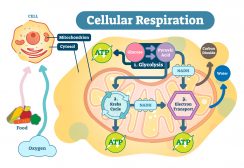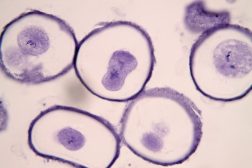Definition
noun, plural: zeitgebers
An external or environmental cue that helps regulate biological clock that drives biological rhythms
Supplement
Biological rhythms such as circadian rhythms, diurnal rhythms, ultradian rhythms, and infradian rhythms pertain to the synchronized cyclic pattern demonstrated by an organism as its response to a particular stimulus. Biological clock that synchronizes with biological rhythm may be endogenous (internal or from within) or exogenous (external cue, such as zeitgeber).1 The term zeitgeber was coined by Jürgen Aschoff, a chronobiologist. He demonstrated how the internal biological clock drives biological rhythms.
Some of the examples of zeitgebers are light, temperature, eating or drinking patterns, etc. These external cues help the internal biological clock to be consistent with the rhythmic cycle. This process wherein the rhythmic events match the period to an environmental oscillation is called entrainment. For example, exposure to daylight (or blue light) at the wrong time may disrupt the quality of sleep since melatonin is produced usually at night (darkness). The duration of melatonin production is affected by the differing duration of nighttime. Melatonin is a hormone involved in sleep-wake timing and many other physiological mechanisms such as blood pressure regulation, seasonal reproduction, etc.
Word origin: German zeit (“time”) + geber (“giver”)
See also:
- biological rhythm
- biological clock
Reference(s):
1 Hedge, A. (2013). Biological Rhythms. Retrieved from ://ergo.human.cornell.edu/studentdownloads/dea3250pdfs/biorhythms.pdf







